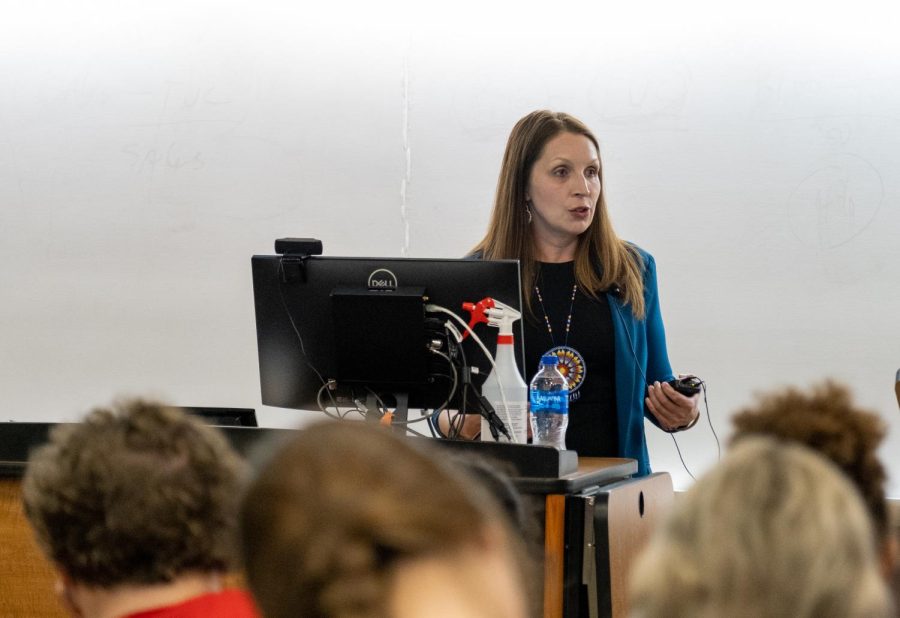Ho-chunk justice discusses body autonomy
Photo creds: Liam Beran / The Advance-Titan — Ho-Chunk Nation Supreme Court Justice Tricia Zunker addressed women’s healthcare, reproductive rights and indigenous issues.
September 21, 2022
Ho-Chunk Nation Supreme Court Associate Justice Tricia Zunker encouraged UW Oshkosh students and others who oppose the June 2022 Dobbs v. Jackson Women’s Health Organization decision to take action by voting, supporting organizations that will help women receive essential healthcare and showing up at protests and events.
“It’s important to be involved,” said Zunker, who spoke at a Constitution Day event last Thursday organized by UWO and the Center for Community and Civic Engagement. She addressed indigenous issues and reproductive rights.
“Tricia’s lived experience has instilled in her a passion for public education, social justice, protecting the environment, ensuring fundamental rights and achieving representation reflective of society,” said Jana Metko, a civic engagement intern for the Center for Community and Civic Engagement who introduced Zunker.
Zunker, a member of the American Civil Liberties Union of Wisconsin Board of Directors and a dean of faculty and professor at the California School of Law, began her discussion with a historical overview of Native American experiences throughout the nation.
Zunker gave particular attention to the role and importance of treaties in tribal life.
“Treaties form the basis for the complex, controversial and legal nature of the unique relationship which exists between the United States and Native American tribes,” she said.
Though treaties have since been replaced with formal agreements, Zunker said that “treaties are supposed to be rights that are permanent, forever and non-terminable.”
Yet, according to Zunker, treaties and agreements formed by Native American tribes often fail to guarantee an exercise of rights.
“This is still a very real situation for Native people… that are trying to exercise their rights and can’t seem to do so,” Zunker said.
Zunker’s presentation also detailed the history and jurisprudence leading to the Dobbs decision while tying issues of bodily autonomy to issues of indigenous sovereignty.
“The erosion of sovereignty, whether we’re talking tribal sovereignty or the right to bodily autonomy, has been significant with the current Supreme Court,” she said.














